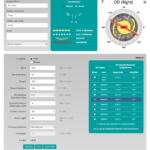Hydration: Preparing For Ramadan
An 18 December 2012 report on religion and public life by the Pew Research Centre stated that in 2010, 48.8 percent were Muslims in Nigeria. The 3rd week of June will mark the Start of Ramadan, the month of Fasting by Muslim Faithful in Nigeria.
Those who are fasting must not eat or drink between dawn and dusk, which this season could be as many as 20 hours every day in Nigeria. Observing the fast is a vital part of Muslim faith, however, it can be challenging, especially during dry seasons. SKT Healthcare who is intending to conduct a survey research to understand their view on the need to hydrate during this month of fast.
“Hydration during Ramadan is a concern for Muslims and it is important to keep hydrated. When someone’s optimum hydration levels are not maintained, such as after fasting, water alone is not always the best way to hydrate. This is because optimum hydration involves electrolytes and salts, and our bodies need to replenish these to absorb water effectively, therefore it is best to hydrate with water that is mixed with oral rehydration salts that contain glucose, sodium and electrolytes.” Oral rehydration salts are a scientifically balanced formula of electrolytes, glucose & minerals that are designed to aid the optimum absorption of water. O.R.S Hydration Tablets from SKT Limited are a convenient soluble tablet form of the oral rehydration salts formula that come in three great tasting flavours; lemon, blackcurrant and strawberry. Top tips to help with hydration during Ramadan:
1. Try to stay hydrated: Make sure you hydrate properly when you break the fast – it is recommended that you drink eight glasses of water a day, if you require additional hydration, then combine water with oral rehydration salts such as O.R.S Hydration Tablets.
2. Watch your diet: Try to eat foods such as fresh fruits and vegetables, which are rich in fibre and contain a lot of liquid, which will help to rehydrate you.
3. Try to keep cool: Taking cold showers, staying out of the sun and wearing loose clothes can help you stay cool throughout the summer.
4. Find the right time to work out: Exercise can quickly affect your hydration levels, so choose a time to exercise that will minimise this, such as 2 hrs after Iftar, and try to maintain your hydration levels.
5. Take care of yourself and others: Fasting can be challenging, especially during the long summer days, if you have an existing medical condition, then you should consult with a medical professional if you wish to fast. There are exemptions to fasting for the medically infirm, pregnant and breastfeeding women and travellers.






